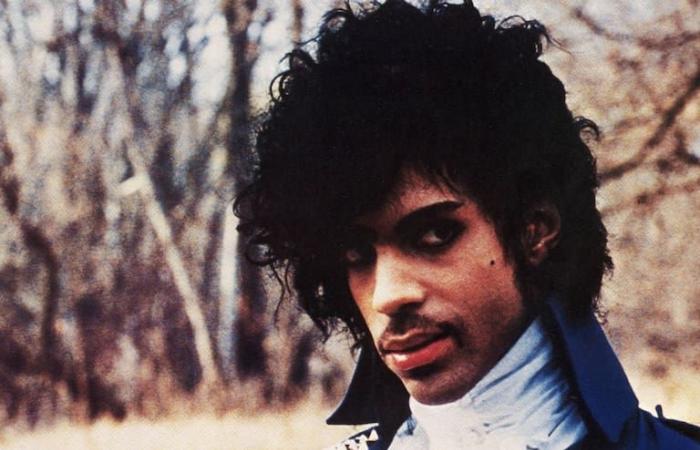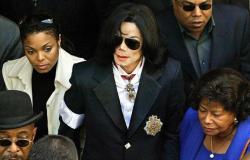Hear
Say a comment about Prince on YouTube: “He dressed like Mozart, sang like Little Richard and played guitar like Jimi Hendrix.” The video in question is that of “Purple Rain”, the title song of the album, which today marks 40 years since its release and is the most emblematic of Prince’s career. A month later, the film of the same name would also be released, with which the Minneapolis-born musician would establish himself worldwide as one of the great pop icons of the 80s. Box office success, success in the Billboard rankings , Oscar and Grammy. All as part of the same combo.
Although it is unnecessary today to tell who Prince was, in 1984 the task was still necessary in Argentina. purple rain It was going to become a classic that Luis Alberto Spinetta, Andrés Calamaro, Fito Páez and Charly García would draw on first, and Illya Kuryaki & The Valderramas and Miranda! after. Before all that, the press release of purple rain presented his creator like this: “Born on June 7, 1959, Prince is, despite his age [25 en ese momento], a living myth of world contemporary music. His posters appear in hundreds of thousands of rooms of teenagers who rave about his music, his records sell for millions, his sensual face and image are on the covers of newspapers and magazines, whether specialized or not, and his first and so far only film has raised a whopping 80 million dollars. This is the basis of the aptly named ‘Prince Madness’, which is just beginning.”
Although Prince’s success in the United States was already solidified by 1984, his globalization was going to occur that year with the three “Purple Rain”: song, album and movie. The figure of the musician, virtuoso and sensual, would be complemented by a pop formula irresistible to anyone: exhibitionism yes, exhibition no. So He would join the pop triumvirate of the 80s, with Madonna and Michael Jackson as kings.
Of that triad, it is clear, Prince was the least massive and the most enigmatic. There is a direct relationship there. Although he never avoided the scandal (check the covers of Prince, Dirty Mind and lovesexy, but also her appearances in a bikini, thong, buccaneers and semi-nude), the audacity with which she did it generated both eroticism and rejection. On the other hand, just with purple rain (hit song, hit album, hit movie) decided not to give promotional notes to any media. Instead, his record label put together a leafy newsletter to announce the film’s release in Argentina. Included was an excerpt from an interview that Prince had given to Pop Music magazine a few years earlier:
-How much of yourself is there in your music?
-I am my music. She and I are one person.
-What kind of things do you write in your lyrics?
-Personal experiences almost always. Erotic fantasies and surreal things. Nothing that can scandalize.
-What are twenty-four hours of your life like?
-Well, I’m always into music. The rest is dispensable.
-What is your priority right now?
-Sleep.
-Many say that you are unique.
-I don’t think so. I don’t think anyone is really unique. I can’t say that I am different from other people. Do you see me differently?
-Why are you so sexual in your lyrics?
-Life is sex.
The strategy worked perfectly. On April 9, 1985, Libre Magazine, then directed by Roberto Pettinato, published an unsigned article after the musician won an Oscar for Best Soundtrack for purple rain: “Prince – The new king of rock is a bisexual black man who defends incest.” Prince was then related to madness as a genius and pervert. The child prodigy who played all the instruments and sang perfectly, but who also seemed to display a limitless sexual voracity that had become global. And “Darling Nikki,” included in purple rain, was going to detonate that second facet to another level. It was the fault of that song that the famous label began to be included Parental Advisory – Explicit Lyrics on albums whose lyrics have explicit content.
In 1984, an American mother bought purple rain for his 11 year old daughter. Everything was going well until, in “Darling Nikki,” Prince sings about a girl who masturbates, invites her to have sex, and the scenes include sadomasochism. The mother’s horror erupted immediately. But she wasn’t just any mother. It was about Tipper Gore, wife of Senator Al Gore. “If I had known that the album talked about those things, I wouldn’t have bought it,” she would declare. And the following year she would be one of the visible faces of the Parents Music Resource Center, an organization “dedicated to monitoring objectionable content in music” with a lot of influence in the Senate.
The group of outraged and frightened parents presented a list of 15 “filthy” songs to be considered for free release and the matter ended with a Senate hearing attended by Frank Zappa and Dee Snider (of Twisted Sister) representing the artists. Finally, the creation of the label was the solution that, in some way, satisfied both parties. The list of 15 “filthy” songs included songs by, among others, Madonna, AC/DC, Cyndi Lauper and Judas Priest.
What was number one? “Darling Nikki” by Prince.
Thus, the album that gave him worldwide fame contained his most acclaimed song (from 1984 onwards “Purple Rain” would be Prince’s anthem par excellence) and his most “filthy” song. Number one in sales. Number one in rejection. But perhaps both should not be thought of as extremes that mark the limits of how far Prince could go, but rather as melting elements of the same magma. These are the infinite possibilities of Prince. The obsessive composer, the future Jehovah’s Witness, the crooner of piano and voice, the maximalist of funk-pop. The one who made his music his biography and not the other way around. Prince is fantasy, it is escape, it is evasion, it is poetry. Like sex.
If for Barthes and then for Gustavo Cerati “Language is a skin”, in Prince one could also think the other way around: the skin is a language. Thus, Prince’s music, epidermal, becomes the metaphysics of sex. A magma of rock and roll, funk, disco, r&b and melodic feel. In the inflections of his falsetto, in his guitar solos, in every fold of his voice there is a libidinal charge that explodes – sometimes in slow motion– towards a climax that is not always accentuated, but is extended. Not like a tantra, because there is no desire for stillness but there is a desire to encompass everything. A pangea of everything he can be as a musician and also as a massive pop icon, especially since the release of purple rain. This is how Prince took on the mainstream, with sublimation as his sword.
In “Purple Rain” (the song, the album, the movie), Prince dyes the rain an impossible color (all possibilities between red and blue are considered purple) to deliver his most famous fantasy. In purple rain, Prince managed to become hyper-massive without losing his artistic focus, proposing to anyone who wants to inhabit that universe, to be willing to surrender to fantasy. To lose control of the limits. To let oneself be carried away by that which cannot be defined, synthesized or reduced, because it is contained in its own indivisible multitude.
Prince made his art everything that no one could be. Not even the. Like purple, which can never be a color but can trigger the imagination of infinite possible colors.






